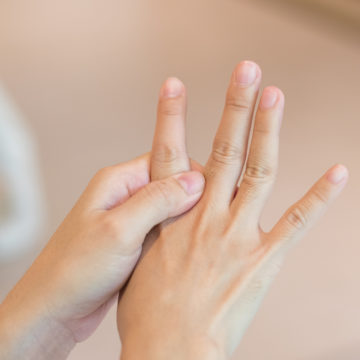
- Swollen fingers and toes are caused by fluid retention inside the body.
- Consuming too much salt may cause fluid retention.
- Some health conditions, such as arthritis, and some autoimmune disease, can also cause fluid retention.
Fluid Retention
Swollen fingers and hands usually happen when body fluids build up in joints or tissues. Besides a salty meal, here are other reasons for swelling:
1. Exercise and Heat

More blood goes to your heart, lungs, and muscles when you work out because they need more oxygen. As a result, less blood flows to your hands, causing small blood vessels to expand and your fingers to swell. During hot weather, the blood vessels in your skin swell so that heat can leave the surface.
2. Injury
A torn ligament, sprained finger, or injured tendon or bone may also cause swelling.
3. Infection
Three types of infection that can cause swelling in the fingers are herpetic whitlow, paronychia, and felon. When left untreated, these infections can spread to other parts of the body.
4. Arthritis

Rheumatoid arthritis (RA) causes swelling, pain, and stiffness in the lining of joints often felt first in the hands. People with psoriasis often experience psoriatic arthritis, which causes fingers and toes to swell like sausages.
5. Gout
Gout affects people who eat too much meat, seafood, and alcohol, causing extreme pain and swelling in the big toe and affects joints in the fingers. It is caused by too much uric acid in the blood, forming crystals in the joint.
6. Medicine
Over-the-counter pain relievers, steroids, diabetes or high blood pressure medicines, nerve pain drugs, and medicines for hormonal imbalance can also cause puffy fingers.
7. Carpal Tunnel Syndrome

A pinched nerve in your carpal tunnel, located in your wrist, can cause your fingers to feel swollen, painful, or numb.
8. Trigger Finger
Trigger finger is caused by swelling around the tendon, which occurs after carpal tunnel surgery or in people with RA or diabetes. It can cause your finger to snap like the sound of a trigger when it’s bent or straightened.
9. Kidney Disease
Swelling in the fingers, feet, and around your eyes can indicate kidney trouble.
10. Pregnancy

It’s common to have swollen fingers, ankles, and feet when you’re pregnant. But swelling in the hands and face can indicate preeclampsia or dangerously high blood pressure during the second half of your pregnancy. It can sometimes occur after childbirth.
11. Sickle Cell Disease
Sickle cell disease causes cells to be stiff and crescent-shaped, which gets them stuck in small blood vessels, blocking blood flow, and resulting in swollen hands and feet.
12. Lymphedema
A blockage in the lymphatic system can cause swelling. People receiving cancer treatment usually develop this condition.
13. Raynaud’s Disease

This rare condition causes the blood vessels in the fingers and toes to narrow when you’re stressed or cold. The lack of blood flow can make your fingers frosty, painful, and turn whitish or bluish. When the vessel is no longer restricted, the blood returns and causes your fingers to throb and swell.
14. Scleroderma
This disease causes your body to produce too much collagen, causing the skin to thicken and harden, and your hands to become stiff, and your fingers to puff up like sausages.
Source: WebMD
